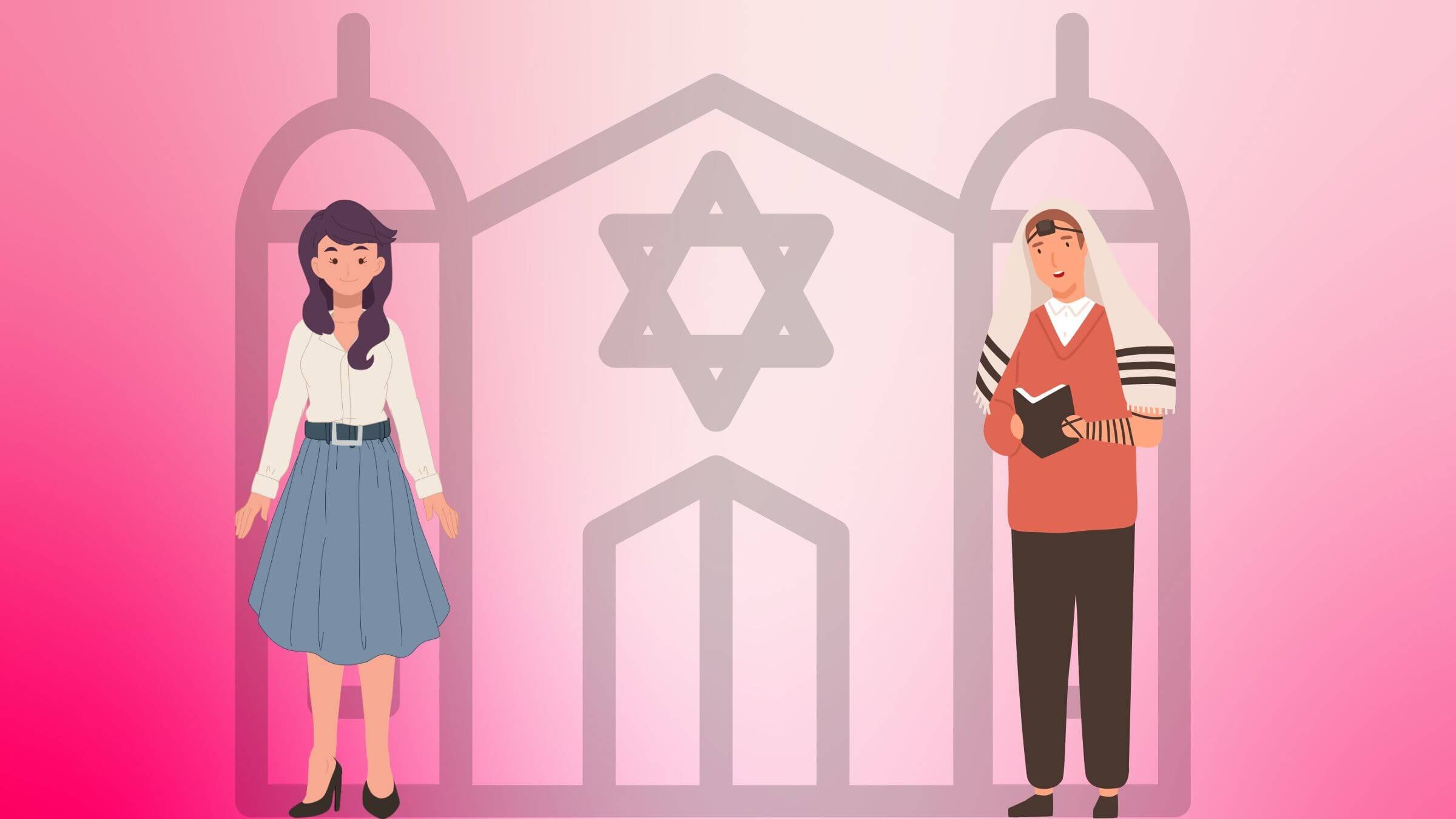BINTEL BRIEFRabbis didn’t love our advice on dating a rabbi
In the words of one rabbi, Bintel ‘got this one wrong’

Graphic by Nora Berman
It was clear from your responses to the recent Bintel Brief advice column advising Crushing on the Rabbi — a single woman wondering what to do about her (potentially mutual) crush on her rabbi — that we all love romance!
Asking out your single rabbi as a congregant, however, raises more questions than your average Tinder date, and from the responses we received from rabbis via the Bintel inbox and social media, most of them would avoid it altogether.
Here’s a look at what our rabbinic-readers felt, and a deeper dive into what the various ethical codes of the Orthodox, Conservative and Reform movements had to say about rabbi-congregant relationships.
It’s complicated (duh)
“Loved your thoughts on dating a single rabbi as a congregant,” wrote Rabbi Scott Hoffman of Shir Chadash in New Orleans. But he felt that we at Bintel “reach the wrong conclusion.” In his view, “dating a congregant is among the reddest of red lines for clergy.” Unless the congregant in question is a member of a different congregation, the risk is too great for spiritual alienation and abuse of power.
On Twitter, Rabbi Oren Hayon agreed — “@bintelbrief got this one wrong” — but still affirmed how adorable love is.
This is so cute! You should also be aware that nearly every rabbi in America is governed by a code of ethics that forbids (or at least emphatically discourages) them from dating their congregants! (@bintelbrief got this one wrong.) https://t.co/6dKdKjvoGK
— Rabbi Oren Hayon (@RabbiHayon) July 21, 2023
Others, like Rabbi Chava Bahle, emphasized the possibility, noted by Bintel, of losing one’s spiritual community if a rabbi-congregant romantic relationship goes south. She cited rabbinic codes of ethics: “The reason our codes of ethics prohibit us from entering into relationships with congregants is based not only on power differential, but in a case where the relationship doesn’t work out, the rabbi stays, and the other person generally loses their spiritual congregation.”
Let’s get ethical
Do rabbinic codes of ethics explicitly forbid single rabbis from dating their congregants? The answer varies, depending on which denomination, and the specific situation. The Rabbinical Council of America, an Orthodox assembly, had the strongest language against it:
“For an unmarried rabbi, romantic relationships with those with whom he serves as rabbi are subject to power imbalance and should be avoided.”
Pretty clear, right? However, the next sentence tempers it: “This creates challenges for single rabbis, especially in small communities, and careful guidance from the RCA Ethics Committee or of senior colleagues is necessary.”
The most cited response from the various rabbinic ethic codes Bintel evaluated was to proceed with caution. No one wants to get in the way of true love, nor can anyone deny the pull single rabbis face from their congregants to find a spouse to welcome into their shul. Yet rabbis of all denominations recognized the challenges and potential pitfalls of consensual rabbi-congregant relationships.
The Reform movement’s Central Conference of American Rabbis outlines at length the “real and symbolic religious authority” that rabbis possess, and “the power differential inherent in our rabbinic roles.” CCAR doesn’t specifically bring up the rabbi-congregant relationship example, but states that “Any personal relationship that raises doubts for the rabbi regarding its ethical propriety ought to give the rabbi serious pause and propel the rabbi at the very least to seek moral counsel from colleagues or other professionals.”
The Conservative Rabbinical Assembly’s Code of Ethics does specifically address the dilemma of single rabbis, and also advises seeking outside rabbinic counsel should Crushing on the Rabbi’s situation arise: “A rabbi who is unmarried and is considering entering a dating relationship with a congregant or staff member should be especially sensitive to the delicate nature and possible adverse consequences of such a relationship and should proceed with caution.”
The Forward has been solving reader dilemmas since 1906 in A Bintel Brief, Yiddish for a bundle of letters. Send us your thoughts on this column or your quandaries about Jewish life, love, family, friends or work via email, Twitter or this form.
















